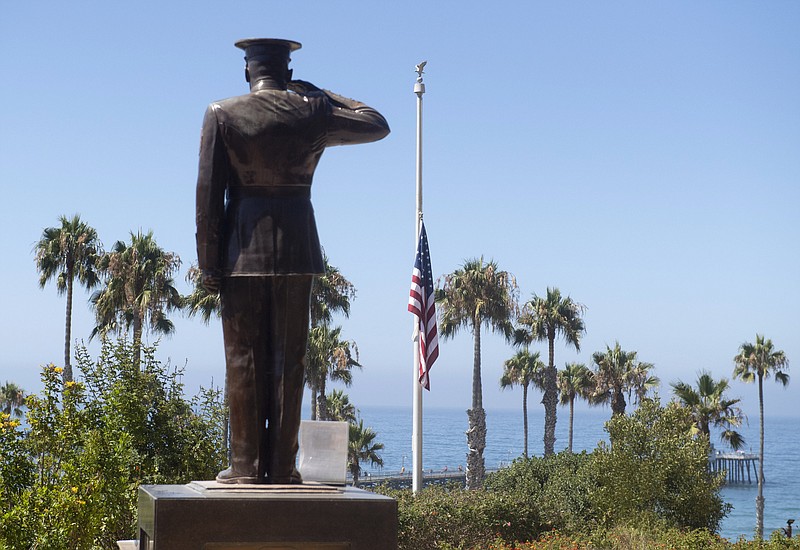CAMP PENDLETON, Calif. -- A Marine Corps officer takes responsibility for the sinking of an amphibious assault vehicle off the Southern California coast that killed nine service members under his command, but he doesn't deserve to be discharged for any missteps, his attorney told a military panel Tuesday.
A Marine Corps attorney countered that Lt. Col. Michael Regner's missteps were egregious enough to justify ending his military service six months short of reaching the 20-year mark that would entitle him to full retirement benefits.
Regner, who spoke to Marine Corps investigators, is expected to address the three-officer panel during a Board of Inquiry hearing that began Tuesday and is expected to last up to four days.
"He's never shirked his responsibilities, he owned the fact that he was the commander at the time, he knows that he is responsible for the deficiencies that took place," said Maj. Cory Carver, Regner's attorney. Carver added that while the buck stops with his client, his actions don't justify discharge.
A Marine Corps investigation found that inadequate training, shabby maintenance and poor judgment by leaders led to the July 30, 2020, sinking of a seafaring tank in one of the deadliest Marine training accidents in decades.
The amphibious assault vehicle had 16 people aboard when it sank rapidly in 385 feet of water off the coast of San Clemente Island. Seven Marines were rescued as the vessel was returning to a Navy ship on a training exercise.
Regner was relieved of command of the landing team of the 1st Battalion, 4th Marine Regiment, 15th Marine Expeditionary Unit, shortly after the sinking. A Marine Corps statement at the time said his removal was based on a "substantial amount of information and data" and cited a loss of trust.
Regner relied on other Marines to tell him that all service members were certified to swim, even though some weren't, said Carver. Regner was told "they're stellar, that they're above average, that they were deployable," he said.
Regner knew of mechanical problems but was told they were fixed, said Carver. Problems with escape hatches on the all-terrain vehicles were known within the Marines for "years and years."
The Marines use the vehicles to transport troops and their equipment from Navy ships to land. The armored vehicles outfitted with machine guns and grenade launchers look like tanks as they roll ashore for beach attacks, with Marines pouring out of them to take up positions.
Other Marines are expected to face possible discharge. Col. Christopher Bronzi, who supervised Regner, was relieved of command of the 15th Marine Expeditionary Unit last year.
The panel was expected to review thousands of pages of investigative reports and evidence before turning to courtroom testimony, likely Thursday.
"This is going to be a difficult decision," Lt. Col. Michael McDonald said in the military's opening statement. "The bottom line is Lt. Col. Regner's substandard performance set the conditions for the sinking."
Every mission has problems, McDonald said, but Regner ignored red flags that should have led him to decide the crew was unprepared for its assignment.
The Marine Corps investigation found inadequate training of platoon members who were provided amphibious assault vehicles that had not been used in more than a year and were in "poor condition." The platoon made repairs in a rush to meet a deadline, according to the investigation.
